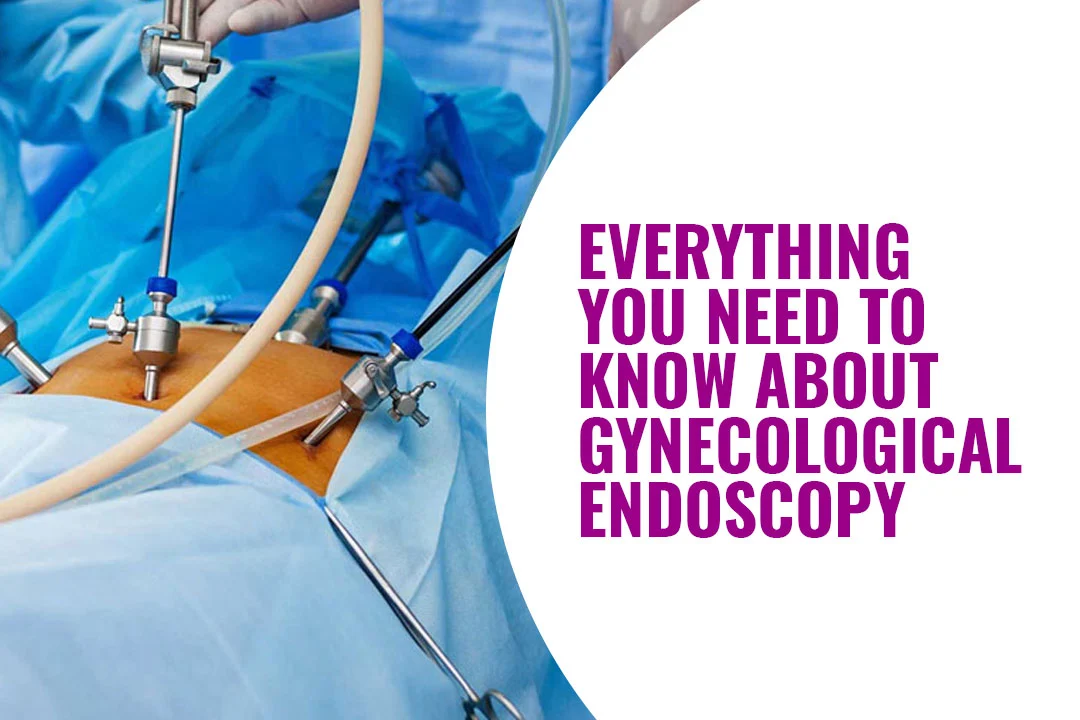Everything You Need to Know About Gynecological Endoscopy
Introduction
Gynecological endoscopy is a vital medical procedure that enables the diagnosis and treatment of various gynecological conditions. In this comprehensive guide, we delve into the intricacies of gynecological endoscopy, shedding light on its significance, procedures, benefits, and more. Dr. Sabita Kumari, a renowned expert in gynecological endoscopy treatment in Faridabad, provides valuable insights throughout this article.
Understanding Gynecological Endoscopy
What is Gynecological Endoscopy?
Gynecological endoscopy refers to minimally invasive surgical procedures performed by gynecologists to visualize and treat conditions affecting the female reproductive system. It involves the use of specialized instruments and a small camera called an endoscope, which allows for precise examination and treatment.
Types of Gynecological Endoscopy
1. Hysteroscopy: This procedure involves the insertion of a thin, lighted tube through the vagina to examine the inside of the uterus.
2. Laparoscopy: Laparoscopic surgery entails making small incisions in the abdomen to insert a camera and surgical instruments for diagnosing and treating various gynecological issues.
Benefits of Gynecological Endoscopy
Gynecological endoscopy offers numerous advantages, including:
– Minimally invasive approach
– Reduced risk of complications
– Faster recovery times
– Less postoperative pain and scarring
Gynecological Endoscopy Treatment by Dr. Sabita Kumari
Expertise of Dr. Sabita Kumari
Dr. Sabita Kumari is a highly skilled gynecologist specializing in endoscopic procedures in Faridabad. With years of experience and a compassionate approach, Dr. Kumari ensures the highest quality of care for her patients.
Services Offered
1. Diagnostic Hysteroscopy: Dr. Kumari performs thorough diagnostic hysteroscopies to evaluate abnormal uterine bleeding, polyps, fibroids, and other uterine abnormalities.
2. Operative Laparoscopy: As a leading expert in laparoscopic surgery, Dr. Kumari offers advanced treatments for conditions such as endometriosis, ovarian cysts, and ectopic pregnancies.
Patient-Centric Care
Dr. Sabita Kumari prioritizes patient comfort and satisfaction, providing personalized treatment plans tailored to individual needs. Her compassionate approach and commitment to excellence have earned her recognition as the best gynecologist in Faridabad.
FAQs (Frequently Asked Questions)
Q: What conditions can gynecological endoscopy diagnose?
A: Gynecological endoscopy can diagnose a wide range of conditions, including fibroids, ovarian cysts, endometriosis, and uterine polyps.
Q: Is gynecological endoscopy a painful procedure?
A: Gynecological endoscopy is minimally invasive and typically causes minimal discomfort. Patients may experience mild cramping or bloating, which can be managed with medication.
Q: How long does it take to recover from gynecological endoscopy?
A: Recovery times vary depending on the specific procedure performed and individual factors. In general, most patients can resume normal activities within a few days to a week after surgery.
Q: Are there any risks associated with gynecological endoscopy?
A: While gynecological endoscopy is considered safe, like any surgical procedure, it carries some risks, such as infection, bleeding, or injury to surrounding organs. However, these risks are minimal and can be mitigated with proper preoperative evaluation and postoperative care.
Q: How often should women undergo gynecological endoscopy?
A: The frequency of gynecological endoscopy depends on individual health factors and the presence of any gynecological conditions. Women should consult with their gynecologist to determine the appropriate screening and diagnostic schedule.
Q: Is gynecological endoscopy covered by insurance?
A: Many insurance plans cover gynecological endoscopy procedures, especially if they are deemed medically necessary. However, coverage may vary depending on the specific insurance provider and policy terms.

